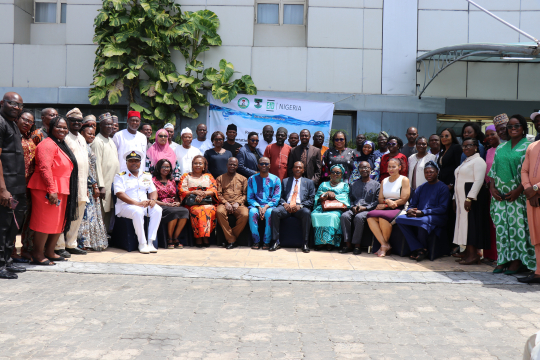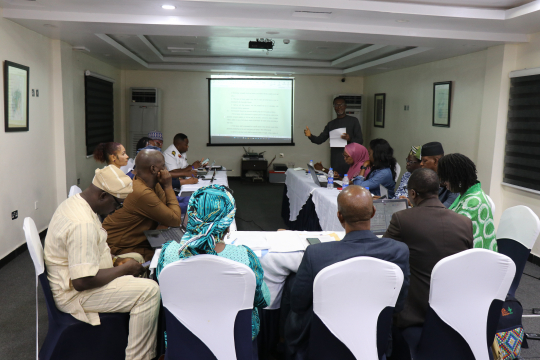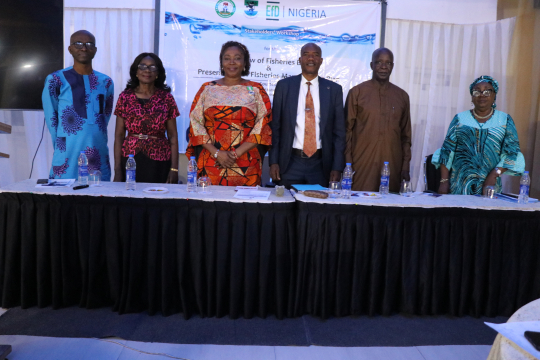In a renewed effort to reform Nigeria’s outdated fisheries legislation, EfD Nigeria has mobilized stakeholders in the fisheries and aquaculture sector to review a revised Fisheries Bill and discuss a newly developed Fisheries Management Plan aimed at aligning Nigeria’s fisheries governance with global best practices.
EfD Nigeria partnered with the Department of Fisheries and Aquaculture under the Federal Ministry of Marine and Blue Economy to organize the two-day stakeholders’ workshop in Lagos on April 15 and 16, 2025.
Photo: Inya Agha Egwu
The workshop brought together representatives from across the fisheries spectrum, including trawler owners, the Nigerian Navy, aquaculture associations, researchers, and government agencies.
Current Act is insufficient
Evidence from EfD Nigeria’s research suggests that Nigeria’s Sea Fisheries Act, last updated in 1992, no longer reflects contemporary realities in the fisheries and aquaculture industry.
The renewed legislative push comes after a previous review effort in 2022 stalled due to Nigeria’s transition to a new government in 2023. The current administration has since moved the Department of Fisheries and Aquaculture under the newly created Ministry of Marine and Blue Economy, signaling renewed political will to reform the sector.
Government commits to new fisheries law
Speaking at the event, Minister of Marine and Blue Economy, Adegboyega Oyetola, who was represented by Director of Fisheries, Paul Opuama, stated that the 1992 Act is no longer adequate to tackle current challenges.
“It lacks provisions to fully address critical issues such as climate change, ecosystem-based management, traceability, monitoring and surveillance technologies, and global trade compliance,” Adegboyega Oyetola said in his speech delivered by Paul Opuama.
The Minister emphasized that the reviewed bill will be prioritized for approval by the Federal Executive Council.
“We understand the urgency of this matter and will work diligently to expedite the process towards establishing a robust legal and regulatory framework”, Adegboyega Oyetola stated.
Reviewed law will meet global standard
He added that the new legal instruments will align with Nigeria’s international commitments such as the FAO Code of Conduct for Responsible Fisheries, the Port State Measures Agreement, and the UN Sustainable Development Goal 14, which focuses on conserving life below water.
Nnaemeka Chukwuone, Director of EfD Nigeria, noted that sustainable fisheries can contribute significantly to Nigeria’s economic diversification efforts.
“Through our collaborative research with EfD Ghana, we have developed a Fisheries Management Plan tailored for Nigeria, modeled after successful strategies in Ghana,” Nnaemka Chukwuone said.
He expressed optimism that with the commitment from the Minister of Marine and Blue Economy, the reviewed documents will soon receive the legal backing required for implementation.
The Directors of EfD Ghana and EfD Nigeria, Wisdom Akpalu and Nnaemeka Chukwuone presented the Fisheries Management Plan developed for Nigeria to the stakeholders. Ghana’s experience of using a fisheries management plan was also discussed at the workshop.
The gathering marks a vital step in overhauling Nigeria’s fisheries governance framework, as stakeholders await the formal submission of the revised bill to the National Assembly.


